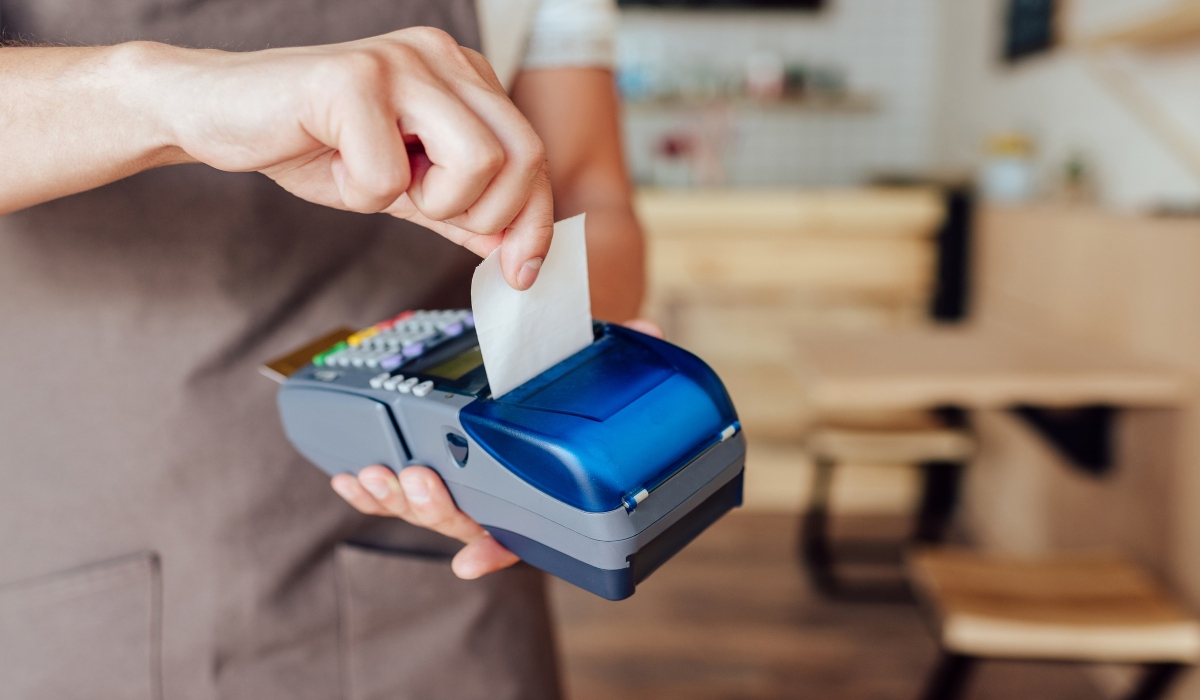Is it time to upgrade your Point-Of-Sale system? Or are you just starting out and wondering what sort of set-up you’ll need?
If you answered yes to either of the above, then you will need something fast, secure, and versatile, to meet the ever-changing needs of your small business. You need an ePos system.
In this post, we’ll briefly discuss what an ePos system is, why you need one, and how to choose the best system for you.
What is EPOS?
It’s a given these days that businesses looking to upgrade their current POS system will opt for an ePOS.
You might be wondering, what is ePOS? EPOS stands for Electronic Point of Sale, which is an all-in-one hardware combined with a PDQ machine that lets your business make transactions face-to-face.
Why do you need one?
Like any business, the need to adapt and develop is vital for survival in such a volatile business climate.
It’s always better to be one step ahead to account for hurdles that may arise, so by picking the best ePOS you’ll open the door to more opportunities and improved business performance.
There are various reasons why individual businesses need an ePOS which you’ll be able to read in full on our post about the advantages and disadvantages of ePOS systems for SMEs.

Things to consider when choosing an ePos system
The ePos set-up you eventually choose depends on the type of business you run, and your daily and long-term financial and functionality needs. We’ve outlined some key areas to consider before looking at different products:
Budget
Your budget will probably be the leading influence on your final choice.
For SMEs with limited cashflow upfront, renting is a great option. Your business needs will be constantly changing, so renting means you can swap out for an upgraded system when your finances are shaping up and you need something more capable.
If you splurge and buy, your running costs thereafter will be lower since you already own the whole set-up.
Your budget will dictate how good the software is you can rent/buy. An entry-level system is around £1,000, with advanced ones coming in at £3,000+. Do not fall in the trap of buying a cheap and nasty system just to save a quick buck. You’ll pay for it in the long run…
Software and Hardware Compatibility
You should consider your software before buying your hardware.
Be sure to get a demo of a few types of software before splurging. You’ll want software that integrates seamlessly with other software, like virtual terminals.
Security Compliance
Almost all systems will be PCI compliant, but don’t get conned by a salesperson for one of the few products that isn’t!
See what integrations it already has, and find out what things you’ll need to do to be on the right side of the law day-in day-out.
Mobility
How mobile are you when taking customer payments? Are you always in a fixed spot behind a counter, or do you travel with your wares? Do you dash around your restaurant or cafe with your card reader?
We’ve outlined types of ePos systems suited to different business types below so be sure to read on.
Inventory Tracking
If you have a hefty inventory to keep track of, you should look for an ePos system which has inventory/stock control integrations.
This will save you using multiple programmes which are error-prone, and prevent you from running out or selling things you don’t have readily available.
Staff Management and Reporting
Want to make sure you’re getting the best out of your team? Look for an ePos system that allows you to create multiple staff logins so you can analyse how well your employees are performing.
Get detailed reports outlining who is processing the most expensive orders, who is processing the most refunds, and more. This data will help you support employees who need additional support, give credit where it is due, and make sure dodgy goings-on aren’t flying under the radar!
Available Support
It is critical that you choose an ePos system with a reliable team behind it. If your card reader starts bugging out when the queue is out the door and round the corner, you need to know someone will be on hand.
Check TrustPilot, FeeFo and Google Reviews for your shortlisted companies. See what support options they offer - is their email buried deep in some FAQs in the hope nobody will find it? What are their phone helpline operating hours? See if the support options meet your business hours.

Which ePOS system is best for you?
There’s lots to consider before settling on an ePos system for a small business. Things like the nature of your business, layout of your establishment, and budget are big guiding factors.
We’ve outlined the main types of ePos system below:
Online ePOS
With multiple different types of ePOS systems available, there’s one to meet any business need. For example, an online POS system might be what you need if you’re a small cafe owner or small retailer.
This allows you to use your own hardware like a PC or tablet while operating an ePOS software, keeping startup and maintenance costs low while being able to access the features you require throughout the working day.
Tablet ePOS
If you own a mobile vending business, like a food truck, a tablet ePos would be a good fit.
This POS system requires minimal upfront investment, and you can often use a tablet that you already have to hand.
This method is more versatile than most small ePOS systems, as some can incorporate barcode scanners and cash drawer monitors, while others can be significantly more complex with the ability to control stock and employee time.
Mobile ePOS
Or maybe you’re a pop up shop - you like to do business on the road and you don’t want to lug a heavy set-up with you when you already have to carry all your stock.
You might be interested in a mobile ePOS that you can use from your smartphone. These ePOS systems have the ability to manage small quantities of inventory and customer details.
You’ll find that many of the ePOS mobile apps are free in exchange for payment processing. You’d be surprised how many payment processors will send a card reader for free! What’s more is that many mobile POS will work with a Bluetooth receipt printer.
Terminal ePOS
If business is booming, and you need to hold a larger stock inventory, or need to be able to have multiple additional tools connected up, a terminal ePos is your best bet.
Terminal ePos systems are best for those in fixed brick-and-mortar stores who will easily be able to function with a stationary system.
Most are sold as an all-in-one hardware and software solution that comes with a barcode scanner and cash drawer. You’ll find that terminal ePOS systems tend to accommodate extensive inventory tools, label printing, and even e-commerce integration should you choose to expand your business online.

Conclusion
We hope this has helped you get a better understanding of how to customise your ePos system to suit your business needs.
It’s important to remember that many of these ePOS systems require a good internet connection to run to their full potential.
You will also need to consider whether it will be worth the investment to buy your ePOS system outright or to rent it.
With many of these ePOS options being easily implemented onto your pre-existing hardware, this should considerably cut initial costs and continued subscription fees and maintenance costs.
If you’re new to the world of credit card processing, see our how do card readers work? guide.
Additionally, with CardSwitcher, you can save up to 40% on your credit card processing costs - see how much you could save today!


